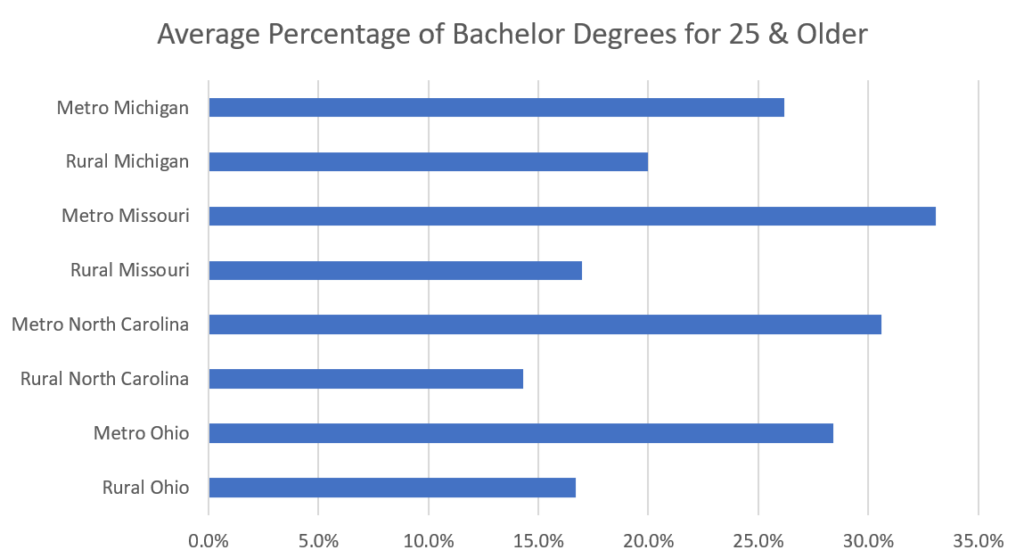The level of education for a region impacts the industries in which the region can attract companies in particular industries. As an example, if a region lacks a large base of college educated workers, they will struggle to attract advanced services/white collar jobs that need a base of workers with a bachelor’s degree or higher. Same goes with the occupations of Science, Technology, Engineering and Math (STEM) workers such as software engineers. Although educational attainment has increased in both metro and nonmetro areas since before the Great Recession, there remains a significant rural-urban education gap.[i] In metro areas as of 2018, 43 % of the prime working age population has a four-year college degree or higher, compared with just 25 % of nonmetro populations.[ii] About 40 % of the nonmetro prime working age population lacks any postsecondary education; however, the share of nonmetro prime working-age adults with associate’s or vocational degrees has increased at a faster pace than in metro areas since the start of the Great Recession in 2007.[iii]
[i] https://www.investinwork.org/-/media/Files/reports/strengthening-workforce-development-rural-areas.pdf

As the table above illustrates, rural communities possess fewer holders of bachelor’s degrees on average compared to metro counties. This fall off in college graduates is even more dramatic when examining successful mid-sized urban market such as Raleigh-Durham that has roughly half its population with a college degree, Kansas City’s MSA is at 37% with a bachelor degree or higher, Detroit’s MSA has at 32% bachelor degree or higher rate, and the Columbus MSA has a 37.9 bachelor degree or higher rate. Thus, urban markets in Ohio, Missouri, North Carolina, and Michigan have an opportunity to retain and attract a base of advanced services and technology jobs that demand college educated workers with a bachelor’s degree. Michigan appears to have a strong base of college educated workers in rural markets with 20% of their rural counties have a bachelor’s degree for their population over 25. Michigan’s rural college graduate rate is not on par with the Detroit MSA or metro Michigan counties but they do top Ohio, Missouri, and North Carolina for rural college graduates. Not all jobs require a college degree but a college educated workforce is critical for advanced industry white collar occupations that constitution most professional service firms. financial services that includes banking and insurance, and higher end computer software professionals.